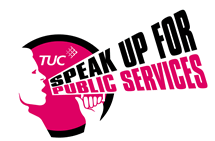 Myth 6 “Back-office” functions can be outsourced without impacting on front-line services
Myth 6 “Back-office” functions can be outsourced without impacting on front-line services
REALITY Support functions are just as important as the front-line
In a recent document called “Doing More with Less” the CBI claims that ’sharing back office functions can improve efficiency” and that ‘non-core activities are best provided by the private and third sectors unless it is essential for them to be provided in-house.’
It is wrong to describe any public sector function as non-core or back-office. Public services are characterised by an extremely complex set of processes and relationships. For example, the gradual development of multi-agency approaches, with professionals working together across different public sector bodies create overlapping responsibilities and lines of accountability. Without so-called back office functions, frontline workers would not be able to do their job. The NHS would not be able to survive without the people who book appointments, analyse blood tests, process X-rays or make sure staff get their wages on time.
The pressure on “back-office” functions is greatest in the push to develop shared services. In many cases, shared services can be an effective way of delivering services such as HR, payroll and IT across different local authorities or public sector organisations and delivering long-term efficiency savings. Unfortunately, they are also associated with pressure to cut short-term costs and outsourcing. The Treasury’s Operational Efficiency Programme which advocates the use of shared services is based by its own admission, on “proxies, estimates and assumptions” of private sector standards of delivery. The push for shared services is based on an over-reliance on economies of scale over quality.
Shared Services
“By 2016 the majority of the transactional elements of Corporate Services in the public sector will be delivered through a handful of professional shared service organisations. Some of these organisations will remain inside the public sector, but many will be outsourced. “Cabinet Office, 2006.
Southwest One
Southwest One is a joint venture between IBM, Somerset County Council, Taunton Deane District Council and Avon and Somerset Police to deliver a range of services under a 10-year contract. Southwest One is 75% owned by IBM, who will make £400m over the 10 years.
The joint venture has been strongly criticised for the lack of effective scrutiny, public engagement and secrecy – the contract has been kept secret for reasons of “commercial confidentiality.”
It offers shared services in IT, finance, human resources, property management, purchasing, facilities management, customer contact centres and services to schools. Southwest One has a framework agreement which enables other local authorities and public bodies to obtain services bypassing the procurement process.








I bet we have all tasted the dubious benefits of outsourcing shared services!
Yes those of in the know see the consequences in more ways than one.